Now a mother for the first time, orphan Galana who is 13 years of age, was rescued as a little baby having been spotted alone and abandoned near the Galana River on the eastern boundary of Tsavo East National Park
Now a mother for the first time, orphan Galana who is 13 years of age, was rescued as a little baby having been spotted alone and abandoned near the Galana River on the eastern boundary of Tsavo East National Park. She was surrounded by a pride of lions before her timely rescue, so she was extremely lucky to escape unharmed. She arrived at the DSWT’s Nairobi Nursery in poor condition with parched skin and prominent cheekbones indicating she had been without her mother for significant time before being rescued.
Thankfully it didn’t take long for Galana to regain weight and become a healthy little calf again, aided of course by the careful care and support she received by the DSWT team and the rest of the Nursery orphan herd, although during her early days at the Nursery she was quite a boisterous and pushy baby, showing her feisty spirit which later led to her becoming a mini matriarch in the Nursery.
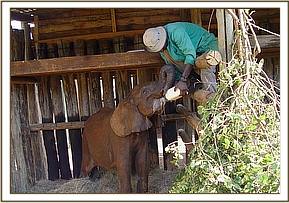
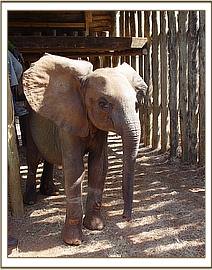
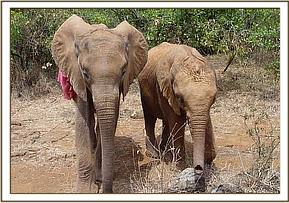

Eventually she was ready to make the journey back to Tsavo in 2005 to start the next phase of her rehabilitation at the Ithumba stockades, one of the Trust’s three relocation units within the stunning northern area of Tsavo, a pristine wilderness, where she settled well becoming an integral part of Yatta and Mulika’s ex-orphan herd in the fullness of time.
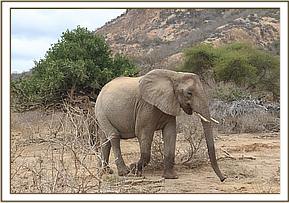

The ex-orphans, while living a perfectly normal wild life, have chosen to remain within the orbit of Ithumba, disappearing for weeks, sometimes months at a time, and then returning to check on the still dependent babies and their human family. During the wet seasons they go much further away, with filled waterholes and water plentiful enabling them to traverse new areas, however in the dry seasons they choose to remain closer to home, anchored by the permanent water points so vital for them and hundreds of wild elephants. Over the years when younger arrivals have come to Ithumba from our Nairobi Nursery our ex-orphans have provided them with loving comfort and guidance, with Galana one of the many generously caring females we have in the ex-orphan herd whose attentions over the years have enabled many younger than her make the slow transition to living a fully wild independent life again.


This month on the 4th of September we were blessed with a rather unexpected gift with Galana spotted at dawn at the Ithumba stockades with a tiny baby underfoot. Benjamin couldn’t at first make out who it was in the dim light, but Galana strolled closer, and under her stomach was a new born, wobbling on her feet and pink behind the ears, obviously born at the stockades in the cover of darkness an hour or two before. She had five wild bulls watching over her keeping her safe, and it was not long before the ex-orphans converged at the stockades as the sun peaked over the horizon that pandemonium broke out when they realised they had a new born in their midst.
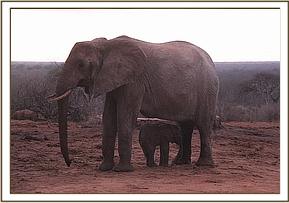
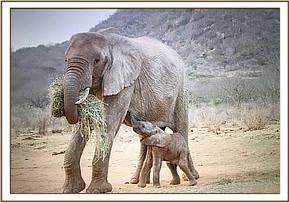
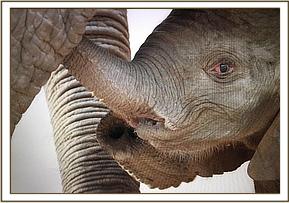

The joy this new little life brought them, and their wild friends unfolded throughout the day, with wild female herds converging to remain as nannies protecting and comforting both mother and baby. Wild bulls hovered around protectively, with some making a nuisance of themselves, mounting Galana several times.
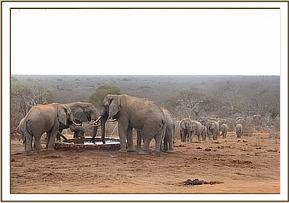
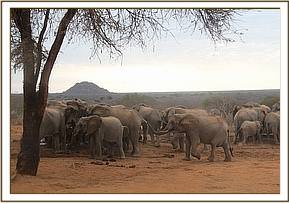
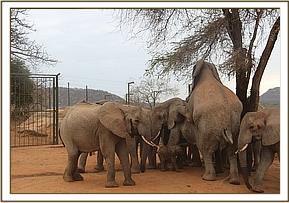

We have called Galana’s baby ‘Gawa’, which means to share in Swahili, a very appropriate name given that our ex orphans never fail to share their babies with their human family, the Keepers. Robert and Angela flew across from Kaluku, the Trust’s field headquarters, that day so that they too could share in the joy of new-born Gawa, and it just so happened miraculously that the BBC was on site filming a story there about our ex-orphans and their wild born babies! With Gawa’s birth we have now enjoyed twenty-two wild born babies born to our ex-orphans, with Gawa the fourth born to our Ithumba ex-orphans, with Mwende to Mulika, Yetu to Yatta, and Wiva to Wendi coming before her.
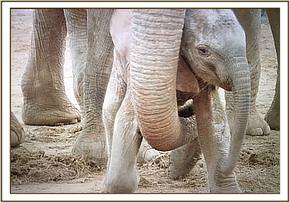
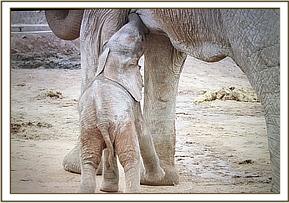
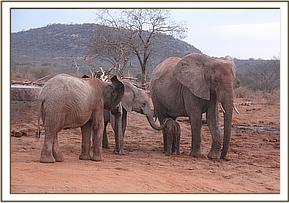

Gawa, her mother, and the many nannies made up of ex-orphans and wild friends have remained close this month, enabling us and the BBC to have the privilege of watching her savour her first weeks.
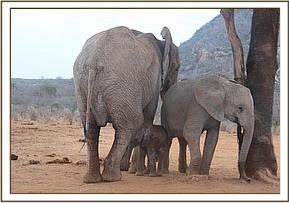

These special moments are testament to the success of the Orphans’ Project and it is our great pleasure to share this news with all of you who help make this lifesaving work possible.